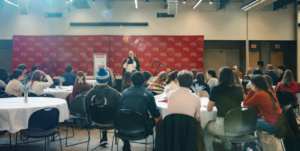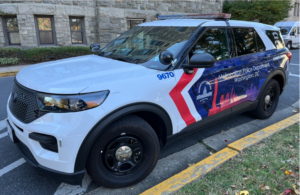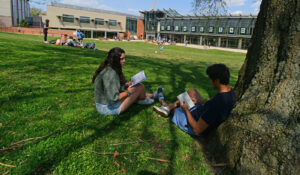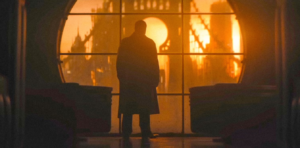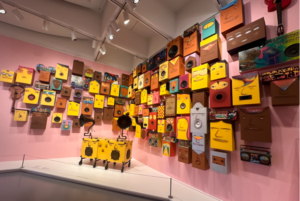SGA Senate Works to Open McGivney Hall 24/7 During Finals Week
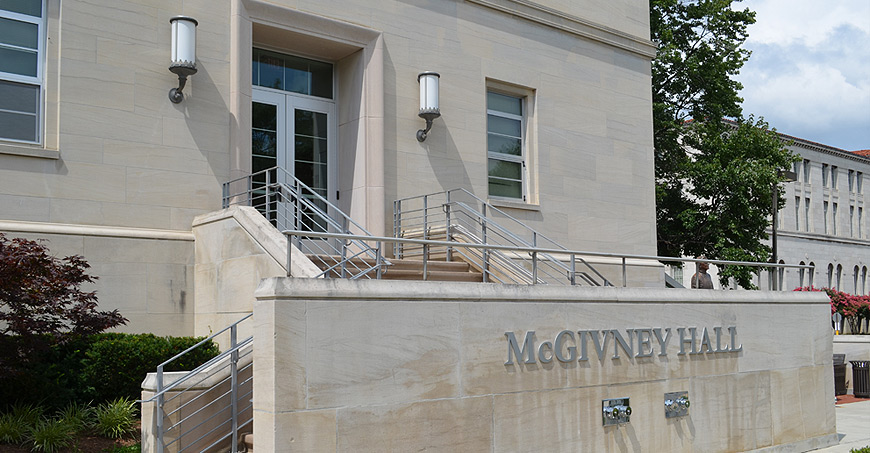
McGivney hall will likely serve as an additional study space during finals week. Courtesy of Catholic University

In its first Senate meeting of the semester, Catholic University’s Student Government Association (SGA) convened to discuss study spaces on campus during finals week and student safety in the McMahon parking lot.
In the first resolution proposal of the evening Monday, January 22nd, senators stated that students need more places to study on campus during final exam weeks in addition to Mullen Library. Sponsored by junior Jimmy Harrington and senior Alexa Schimp, the resolution requested that McGivney Hall be open 24 hours a day during the finals period. McGivney, the senators cited, has been recently updated and contains computer labs, group study spaces, and classrooms. It could be an additional location for students to use during the week in which Mullen is the most crowded.
While there was not much debate on the matter, one senator asked if the computer lab in Leahy Hall was not sufficient enough for students to use, as it is open 24 hours a day, 7 days a week as well. The response was that McGivney would serve as another additional resource, centrally located by Mullen for both on and off campus students to take advantage. Harrington also pointed out that this decision would not be a costly one, but would just involve a slight adjustment for Catholic’s Department of Safety (DPS) officers who monitor the area already.
“McGivney is a recently updated building that has both group and individual study spaces for students,” Harrington said. “But what’s also important is its location between Mullen and Gibbons Hall that allows it to be on a current DPS route, so they could control the area without needing any additional officers.”
According to the sponsoring senators, both the office of the Provost and Public Safety are on board with the proposal, suggesting the legislation should move forward to be in effect for this semester’s week of finals.
“According to our conversations with both Associate Vice President for Public Safety, Thomasine Johnson, and University Provost Andrew Abela, it seems very likely this will take place this May after they saw it as very feasible and approved,” Harrington said.
The other resolution aimed to designate a crosswalk through the McMahon parking lot to enhance student safety. The sponsors, freshman Alexandra Kilgore and sophomore Weston Kirby, asserted that the McMahon lot lacks any kind of traffic control, making it dangerous for both walking students and those driving in cars to park. The resolution requested a crosswalk to be marked, extending from the end of the ramp at the Pryzbyla Center patio to the entrance of Campus Ministry in Caldwell Hall.
In between classes especially, the McMahon lot becomes very hectic and difficult to navigate to weave in and out of tight parking spaces on their way to buildings like the Pryz, Caldwell, Leahy, and McMahon Hall. The senators say the parking lot’s organization is a safety hazard for pedestrians and drivers, and even presents risks of damage to parked cars.
Kilgore noted that the University Master Plan proposes to replace McMahon lot with an open quad area for students to enjoy, but that “there is nothing in the plan about taking your life in your own hands in the meantime.”
According to a graphic (seen below) presented at the meeting, the marked crosswalk would remove about six parking spaces. Kilgore addressed subsequent concerns saying that there is sufficient space in the parking garage underneath the law school, and that a meeting with university architect Margaret Carney is in the works to discuss logistics.
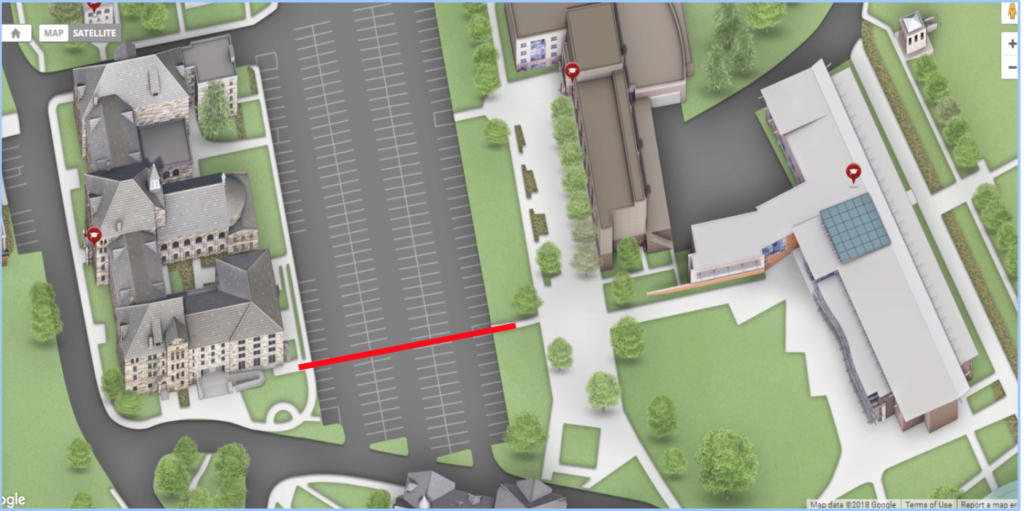
“I think the university parking garage is underutilized because not as many people are aware of it,” Kilgore said. “This may be because it’s slightly farther from the center of campus, or because its parking isn’t as visually obvious as the McMahon lot.”
Both of the resolutions were met with little questioning, and were passed by the Senate’s votes. To move forward, the legislation must be signed by the SGA President Brianna Howard, and then they go to the appropriate university department to be discussed further. Here, the administration will ultimately decide if and to what degree the school will implement the Senate’s suggestions.
The twenty-five student senators present also voted to make amendments to their own senate bylaws in the meeting. The main result of the edits was the addition of an article dedicated to the allocation appeals process for student organizations. After considerable debate between senators on some of the language and checks on power in the added section, the edits were passed. Student organizations may now formally appeal an allocation decision from the Treasury Board and the matter will be analyzed by a special committee on the appeal.
The next Senate meeting will take place on Monday, February 5th in Great Room B. Legislation can be tracked on SGA’s website for the student body to stay up to date.

